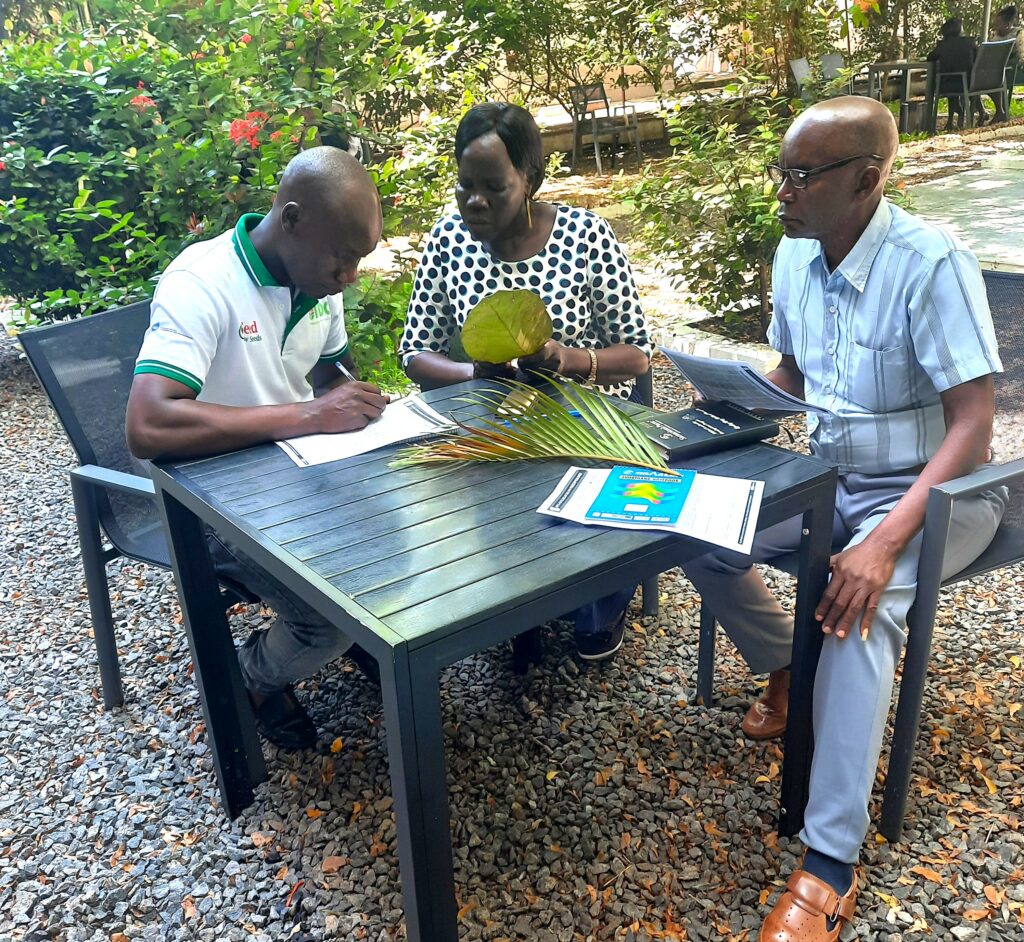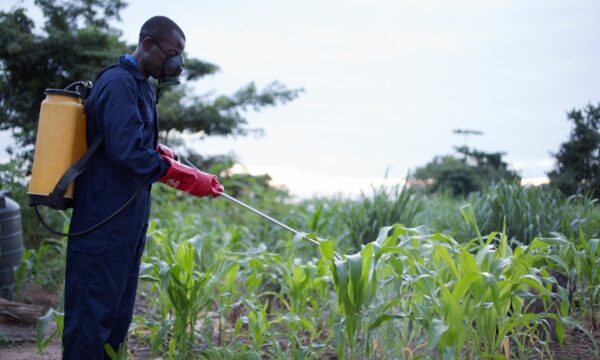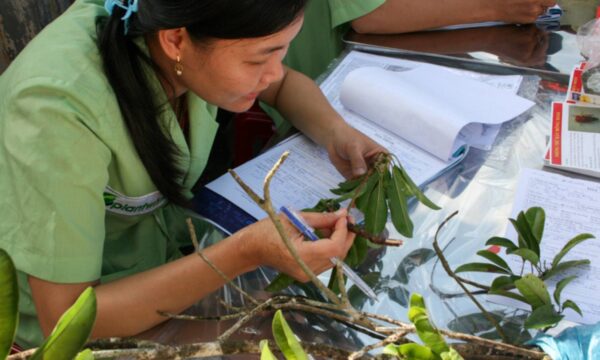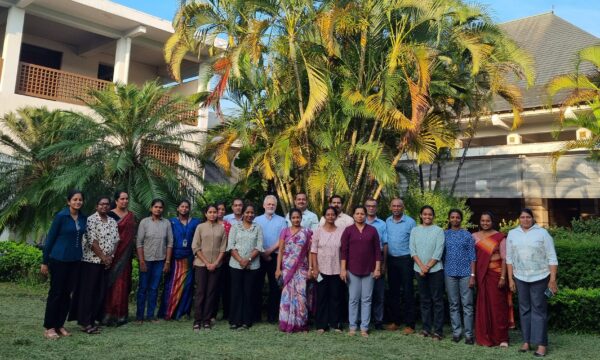
South Sudan’s agricultural sector is vital to its economy and employs most of the population. The FAO estimates that up to 95% of South Sudan relies on agriculture for income. Diverse crops like cassava, maize, groundnut and sorghum characterize farming here. However, agriculture in this East African nation faces challenges. Climate change and global warming, for example, cause plant pests and diseases to spread, damaging crops. Government initiatives are actively seeking to address these challenges, with a primary focus on ensuring food security and promoting economic sustainability. Their goal is to safeguard the livelihoods of the country’s many smallholder farmers.
South Sudan is Africa’s youngest nation, gaining independence in 2011. It is rich in ethnic diversity and natural resources. In recent years, it has faced humanitarian challenges and internal conflicts. But its people aspire to build a stable and prosperous future. Here, robust plant health systems are vital for the nation’s agrarian economy. These systems protect crops from pests and diseases as well as non-biotic stresses such as drought. They play a pivotal role in securing food availability and fostering the economic resilience needed to help advance the country’s overall prosperity.
PlantwisePlus in South Sudan
PlantwisePlus is scaling out its activities in South Sudan – one of the programme’s 27 core countries. The goal is to reach smallholder farmers and provide them with access to the knowledge and skills they need to improve their farming production practices.
The programme will do this by boosting the country’s plant health systems. It aims to help farmers predict, prevent and prepare for plant health threats in the face of a changing climate. The work will help farmers to reduce their crop losses and gain better yields. Contributing to local, national and regional climate-focused efforts reaps benefits since building climate-resilient food systems safeguards future food production.
PlantwisePlus will also help farmers to produce safer food. Sharing science-based approaches and practices around food safety not only helps to protect the environment but also consumer and farmer health.

Gauging interest in South Sudan’s plant health system’s delivery
PlantwisePlus is currently scoping out interest among stakeholders in South Sudan’s plant health system and working towards expanding into the country this year. The focus, at present, is very much on creating engagement and building partnerships with local stakeholders. This phase includes raising general awareness about PlantwisePlus in the country.
In 2024, the programme will promote digital plant health tools and the plant clinic approach. Additionally, it will focus on content development, including development of pest management decision guides and factsheets.
In relation to plant clinic operations, the programme is in the process of agreeing a roadmap with national stakeholders. The training of plant doctors is envisaged to happen in 2025. If established, plant clinic operations would be supported by the programme’s digital plant health tools.
Delivering ‘training of trainers’
PlantwisePlus has been scoping out potential collaboration in South Sudan for over six months. In mid-2023, the programme conducted a situational analysis of the country. The report provided a comprehensive examination of South Sudan’s plant health systems. This included status, challenges, opportunities and potential future strategies. Based on the analysis, in 2023, PlantwisePlus conducted a training session, targeting stakeholders in plant health in the country.
In October 2023, CABI’s Willis Ochilo, Fernadis Makale and Stefan Toepfer delivered a ‘training of trainers’ for plant doctors. They travelled to Juba in South Sudan, giving workshops on plant health systems.
The objective was to understand local knowledge about plant health systems and extension. Based on the plant doctors’ Modules I and II, the workshop focused on field diagnosis of crop health problems and pest management. The training consisted of practical exercises, an interactive lecture and informational handouts. It also helped raise overall awareness about the PlantwisePlus programme.
Delivering training in plant clinic operations
The training had 22 participants, mainly from the Ministry of Agriculture and Food Security (MOA). Stakeholders attended from MOA departments in research, extension and plant protection. They also included seed providers and staff from training organizations.

The workshop kicked off with Plant Doctor Module I. Over the course of three days, training assessed and enhanced the participants’ skills. This module focuses on field diagnosis of crop health and plant clinic operations. It involves creating and maintaining a global network of plant clinics. The clinics provide local farmers with access to plant health expertise. It also concentrates on using data and tools to enhance agricultural practices. Accurate data helps to ensure sustainable crop production. For a country as diverse as South Sudan, this is important.
Pest management training was delivered over the course of four days for Plant Doctor Module II. This module focuses on the delivery of pest management advice to farmers. An important part of the module is the use of innovative digital tools and technologies. The tools support plant health advisory services. Leveraging communication technologies and information is critical. It enhances the efficiency of data collection, analysis and dissemination. This, in turn, empowers farmers with timely and accurate plant health information. It helps them improve agricultural decision-making.
Understanding the results – what are the next steps?
Pre- and post-training quizzes revealed a key issue. Delivering both modules during the same week could be problematic for participants. The modules contain a large amount of new information. Therefore, trainers suggested holding separate activities for each module. This is done in several other PlantwisePlus countries. The end-of-course evaluation revealed the training had renewed the participants’ interest in plant health. It also revealed a need for advisory services for farmers. Farmers live across large distances in South Sudan. So, agricultural extension services are a lifeline for crop health and food security. Plant clinics are a means to ensure they receive the support they need.
Further training of trainers is envisaged for the future. But first, a clear roadmap must be established for the operation of plant clinics in the country. CABI is currently working on biocontrol for papaya mealybug in East Africa, including South Sudan. This work is taking place in partnership with the Darwin Initiative. The project aims to enhance smallholder papaya production. At the same time, it seeks to reduce excessive reliance on pesticides and increase yields. Through this collaboration, it is hoped that PlantwisePlus could help to strengthen work on biocontrol in the country, expanding agricultural advisory support.
Read more about CABI’s work in South Sudan
Scaling up the fight against papaya mealybug pest in South Sudan
Piloting biopesticide use to manage fall armyworm in South Sudan
Images: CABI
PlantwisePlus gratefully acknowledges the financial support of the Directorate-General for International Cooperation (DGIS), Netherlands; European Commission Directorate General for International Partnerships (INTPA, EU); the Foreign, Commonwealth & Development Office (FCDO), United Kingdom; and the Swiss Agency for Development and Cooperation (SDC).
3 Comments
Leave a Reply
Related News & Blogs
How do pest risk registers address the spread of plant pests in Africa?
Pest risk registers can help to solve problems in agriculture, addressing the growing global threat of plant pests. Moreover, changing weather patterns, led by rising temperatures, are causing them to reproduce faster and expand into new regions. In ad…
10 July 2025





Very good achievement
Farmers are basically back bone of country economy
Is it only in Sudan or every where
Like Pakistan
Very good initiative
I would like to appreciate the effort and commitment exerted by CABI in strengthen the plant health system in South Sudan by training plant doctors; for first time since Yambio Research Station was established in 1948. This is indeed a turning point for plant protection sector in the country amid gaps in food security and unpredictable impacts of climate change…..Peter B S Gama, PhD, Associate Professor, University of Juba, Department of Agricultural Sciences.